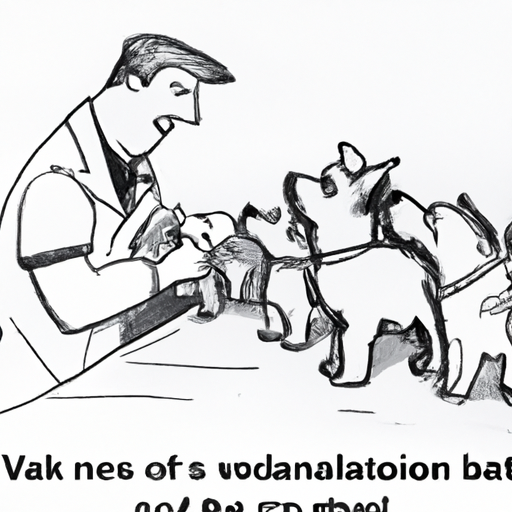As a caregiver, it’s natural to have questions about your pet’s health needs, especially when it comes to vaccinations. One of the most crucial vaccines your dog needs is for rabies, a deadly disease that can affect all mammals, including humans. So, let’s dive into understanding the frequency of rabies shots for dogs.
Understanding Rabies
Rabies is a virus that affects the central nervous system, leading to a severe and often fatal illness. It’s primarily transmitted through a bite from an infected animal. The heartbreaking reality is that once symptoms start to show, the disease is almost always fatal. The good news is that it’s preventable with regular vaccinations.
When Should Your Dog Get Their First Rabies Shot?
Your dog should receive their first rabies vaccine when they are still a puppy. The exact age can vary, but it’s typically around 3 to 4 months of age. This initial shot acts as a shield, protecting your pup from this harmful virus.
| Age | Vaccine |
|---|---|
| 3-4 months | First rabies |
How Regularly Should Your Dog Be Vaccinated Against Rabies?
The frequency of the rabies shots largely depends on your dog’s age, health status, and local laws. Generally, after the initial shot, a booster is required after a year. Following this, your dog should get a rabies shot every 1 to 3 years.
- Puppy (3-4 months): Initial rabies shot
- 1 year later: Booster shot
- Every 1-3 years thereafter: Regular rabies shots
Factors Influencing the Frequency of Rabies Shots
Numerous factors influence how often your dog needs a rabies shot. These include:
- Local laws: Some areas require annual shots, while others mandate a shot every three years.
- Your dog’s health: Some dogs might need more frequent shots due to their health conditions.
- Lifestyle: Dogs that often interact with wildlife or are frequently outdoors might need more regular shots.
Protecting Your Dog and Others From Rabies
Vaccinating your dog against rabies not only shields them from this fatal disease, but also protects you, your family, and your community. If your pet is not protected and gets bitten by a rabid animal, it’s not just their life at risk but also anyone they could potentially bite.
Frequently Asked Questions
Q1: Is the rabies vaccine safe for my dog?
Yes, rabies vaccines are both safe and effective.
Q2: Can my dog get rabies even after vaccination?
While highly unlikely, no vaccine is 100% effective. However, vaccinated dogs that do contract rabies usually have milder symptoms.
Q3: What if I miss a scheduled rabies shot for my dog?
If you miss a shot, contact your vet immediately to reschedule. It’s crucial to maintain the vaccine’s effectiveness.
Q4: Are there side effects to the rabies vaccine?
Some dogs might experience mild side effects, like a small lump at the injection site or slight lethargy. If you notice anything unusual, consult your vet.
Remember, as a caregiver, you play a vital role in protecting your pet from diseases like rabies. Stay informed, stay vigilant, and ensure your pet gets their regular check-ups and vaccinations.



